Presidential Command & National Security Leadership
Analyze case studies to better understand presidential control over foreign policy and the meaning of executive power.
Spring 2015
New York, NY
War is an inescapable part of the human condition, with the course of history and the character of civilizations often shaped by the legacy of past battles and the possibility of future conflicts. Death and memory, heroism and tragedy, love of country and hatred of enemies—the human drama plays out, in sharp relief, on both ancient and modern battlefields.
Like any significant human activity, war raises profound moral questions for statesmen, soldiers, and citizens. When is war moral, and when is war unjust or even barbarous? Are there ethical and legal rules that should govern all warfare, and what happens when our enemies play by different rules? Do new technologies of war fundamentally alter the moral choices we face and the moral issues at stake? How do we deal with tough cases—including preemptive strikes, targeted killing, torture, drones, nuclear deterrence and nuclear proliferation, and the use of civilian shields?
Led by Harvard Professor Stephen Rosen, one of the world’s preeminent teachers of strategy, and Gen. James Dubik, one of America’s most experienced military leaders, this institute will think morally about war by looking at a series of key moments and great texts in military-political history: How do we evaluate the moral decisions of ancient peoples—such as the Athenians as portrayed in the Melian dialogue, or the Israelites as portrayed in the book of Joshua? Why continue fighting on the Western front in the First World War once the deadlock in the trenches emerged? Why firebomb the cities of Germany and Japan in World War II? Why not bomb death camps at Auschwitz? Is it right to use torture for prisoner interrogation in counter-terrorism campaigns? What about campaigns to starve civilians, as in the British blockade of Germany in World War I? And what about recent struggles—in Bosnia, in Iraq, and in Gaza? Or future dilemmas—such as the possibility of a nuclearized Middle East?
Our aim will be to analyze such cases in a way that takes seriously the political and strategic dilemmas, so that our moral judgments will be grounded in the real choices that leaders and citizens face, both in deciding when to fight and how to fight. In addition to lectures and seminar discussions, the course will utilize role playing simulations. Institute participants will be called upon to make ethical arguments for and against alternative courses of action from the standpoints of the statesmen, citizens, and soldiers affected by the decision.
This course was offered in conjunction with the Tikvah Fund.
Images courtesy U.K. Government | U.S. Army
Stephen Rosen on our geopolitical challenges
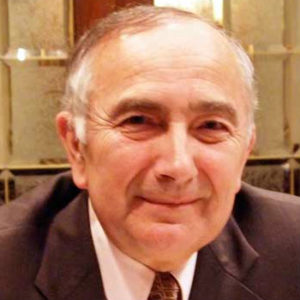
LTG James M. Dubik (U.S. Army, Ret.) is a Senior Fellow at the Institute for the Study of War and a Professor at Georgetown University’s Security Studies Program. General Dubik has extensive operational experience in Iraq, Afghanistan, Japan, Korea, Thailand, Bosnia, Haiti, Panama, and in many NATO countries.

LTG James M. Dubik (U.S. Army, Ret.) is a Senior Fellow at the Institute for the Study of War and a Professor at Georgetown University’s Security Studies Program. General Dubik has extensive operational experience in Iraq, Afghanistan, Japan, Korea, Thailand, Bosnia, Haiti, Panama, Honduras, and in many NATO countries.
His last job on active duty was as Commanding General of the Multinational Security Transition Command-Iraq (MNSTC-I) and the NATO Training Mission-Iraq during the Surge of 2007–2008. He is a member of the U.S. Army Ranger Hall of Fame and a distinguished member of the U.S. Army 75th Ranger Regiment.
General Dubik taught Philosophy at West Point and Campaign Theory and Practice at the U.S. Army School of Advanced Military Studies, Fort Leavenworth, Kansas. He has completed an MIT fellowship program for national security studies as well as executive programs in national security at Harvard’s JFK School of Government and Syracuse University’s Maxwell School of Citizenship and Public Affairs. He is the author, most recently, of Just War Reconsidered: Strategy, Ethics, and Theory.
He holds a Bachelor’s Degree in Philosophy from Gannon University, Erie, Pennsylvania; a Masters in Military Arts and Sciences from the Army Command and General Staff College, Fort Leavenworth, Kansas; and a Ph.D. in Philosophy from the Johns Hopkins University.
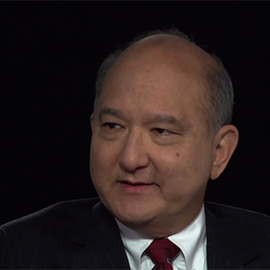
Stephen Peter Rosen is the Beton Michael Kaneb Professor of National Security and Military Affairs at Harvard University. He was the civilian assistant to the Director of the Office of Net Assessment in the Office of the Secretary of Defense.

Stephen Peter Rosen is the Beton Michael Kaneb Professor of National Security and Military Affairs at Harvard University.
He was the civilian assistant to the Director at the Office of Net Assessment in the Office of the Secretary of Defense, the Director of Political-Military Affairs on the staff of the National Security Council, and a professor in the Strategic Department at the Naval War College. He participated in the President’s Commission on Integrated Long Term Strategy, and in the Gulf War Air Power Survey sponsored by the Secretary of the Air Force.
He has published articles on ballistic missile defense, the American theory of limited war, and on the strategic implications of the AIDS epidemic, and wrote the book, Winning the Next War: Innovation and the Modern Military which won the 1992 Funriss Prize for best first book on national security affairs awarded by the Merchon Center at Ohio State University. His writings also include Societies and Military Power: India and its Armies (Cornell University Press, 1995), and War and Human Nature (Princeton University Press, 2007).
Reading:
Reading:
Required
Recommended
Reading:
Required
Recommended
Reading:
Required
Recommended
Reading:
Required
Recommended
Reading:
Required
Recommended
Reading:
Watch:
Reading:
Required
Recommended

Vance Serchuk
Vance Serchuk is Executive Director of the KKR Global Institute and an Adjunct Senior Fellow at the Center for a New American Security. Prior to joining KKR, Mr. Serchuk served for six years as the senior national security advisor to Senator Joseph Lieberman (I-Connecticut).
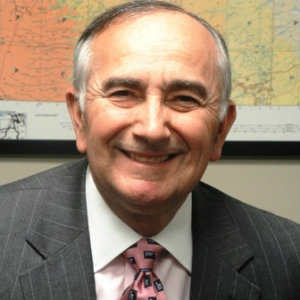
James M. Dubik
LTG James M. Dubik (U.S. Army, Ret.) is a Senior Fellow at the Institute for the Study of War and a Professor at Georgetown University’s Security Studies Program. General Dubik has extensive operational experience in Iraq, Afghanistan, Japan, Korea, Thailand, Bosnia, Haiti, Panama, Honduras, and in many NATO countries.

Frederick W. Kagan
Frederick W. Kagan is a Senior Instructor with the Hertog War Studies Program at the Institute for the Study of War. The author of the 2007 report “Choosing Victory: A Plan for Success in Iraq,” he is one of the intellectual architects of the successful “surge” strategy in Iraq. He is the director of AEI’s Critical Threats Project.
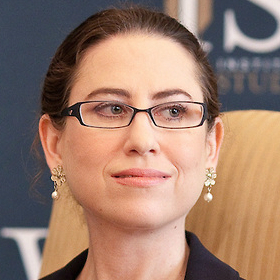
Kimberly Kagan
Kimberly Kagan is a Senior Instructor with the Hertog War Studies Program and founder and president of the Institute for the Study of War. She is a military historian who has taught at the U.S. Military Academy at West Point, Yale, Georgetown, and American University.
Mick Ryan
Mick Ryan is a retired major general in the Australian Army. He is now an adjunct fellow at the Center for Strategic and International Studies in Washington DC, and a non-resident fellow of the Lowy Institute in Sydney. In January 2023 Mick was also appointed as an Adjunct Professor at the University of Queensland in Brisbane, Australia.
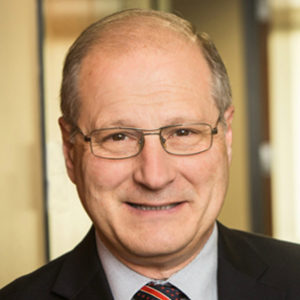
Eric S. Edelman
Ambassador Eric S. Edelman is Counselor at the Center for Strategic and Budgetary Assessments. He retired as a career minister from the U.S. Foreign Service on May 1, 2009. He has served in senior positions at the Departments of State and Defense as well as the White House, where he led organizations providing analysis, strategy, policy development, security services, trade advocacy, public outreach, citizen services, and congressional relations.
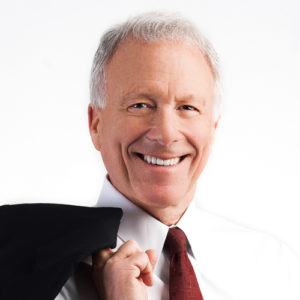
Lewis Libby
Lewis “Scooter” Libby is a distinguished fellow at the Foundation for Defense of Democracies. He has held several high level positions in the federal government related to his current work on national security and homeland security affairs. This included roughly a dozen years working in the White House, the U.S. Department of Defense, and the U.S. Department of State.
Paul Wolfowitz
Paul Wolfowitz is a scholar at the American Enterprise Institute. He spent more than three decades in public service and higher education. Most recently, he served as president of the World Bank and deputy secretary of defense.